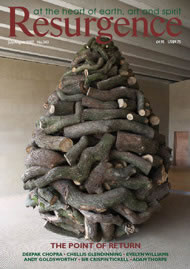MOST OF US lucky enough not to be victims of wars – yet – are used to agonising over slaughters continually reported in the media. Many of us participate in largely futile protests. But not so many of us realise that the daily toll of deaths and immediate injuries is but the tip of an iceberg in relation to the full suffering that war always causes.
This book shows how survivors often suffer for much of the rest of their lives from the terrible things done to them, or done by them, in battlefields. It is “a collection of essays, poems and stories of eighty-two veterans from five wars”. These are from writing courses held over a ten-year period by the editor, who continues to help veterans to cope with their traumas in this way. The autobiographical notes that precede each entry are also important as they tell how the writers were led into wars.
Most of the writings relate to experiences in Vietnam, but some are from more recent conflicts: for example, Iraq, Israel. And some are by people involved in violent situations or peacemaking efforts away from organised warfare.
After getting through the book I was so traumatised – by proxy – that I felt the book should start with a warning, “Reading some articles in this book could seriously damage your peace of mind.”
The theme of the book, such as it is, could perhaps be summed up by quoting from an article, ‘One Small Exception’ by Joe Lamb:
“The unexpected kindness and tolerance that I often encountered in the military were sometimes jarringly absent in my interactions with the civilian peace movement. It was an unpleasant and recurring surprise to find that many peace activists expressed an arrogant self-righteousness towards soldiers… Part of the pathology of the Vietnam-era shared psychosis was that the culture blamed the war, and later its loss, on the soldiers that it sent to fight the war. This perfidious attitude was one of the ways the culture betrayed the Vietnam vet… Many people acted as if the conscripts fighting the war had somehow created the war… Young servicemen and women do not make foreign policy, and they don’t choose to be wounded, to die, or to witness the death of their friends…
“One betrayal of the soldier … I cannot forgive. During the Vietnam war, those in power would sometimes hide their mistakes and misjudgements behind the flag, and even more cynically behind those they had sent into combat. They would say that those who questioned the war were guilty of betraying the soldier, and that protesting the war was unpatriotic and anti-American. It was not, and it is not. A lie does not become a truth when wrapped in the flag. I cannot forgive this betrayal because it is ongoing, and I don’t know how to forgive an abuse that doesn’t stop.”







